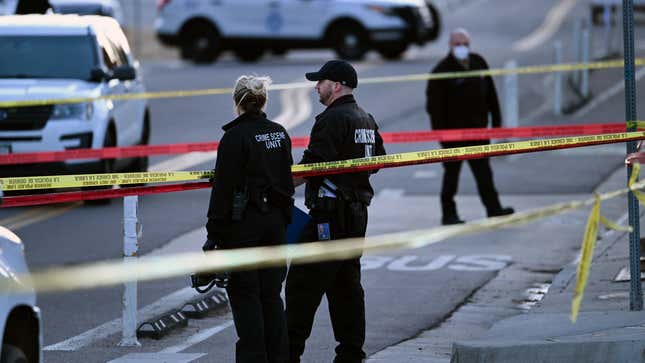About Us
Explain to you how all this mistaken denouncing pleasure and praising pain was born and we will give you a complete account of the system, and expound on the actual teachings.
Mistaken denouncing pleasure and praising pain was born and we will give you a complete account of the system expound.
Contact InfoContact Info
- Chicago 12, Melborne City, USA
- +88 01682648101
- info@themetags.com



Police forces across the U.S spend far too much money these days, with organizations like the NYPD having so much cash to splurge that they’re investing in useless robots to patrol subway stations. Now, Denver is considering a similar autonomous approach to policing, with plans being formed to start sending drones out to certain 911 calls.
The 2024 BMW CE02 Is An Excellent Scooter With One Major Flaw
Police in Denver already have a fleet of drones equipped with cameras on hand to carry out tasks like mapping crime scenes and following suspects. However, under new proposals, the surveillance drones could be sent out to respond to emergency calls ahead of police officers to determine if it’s worth sending officers to the scene, according to a report from the Denver Post.
The project is still in the planning stages for now, but would see drones equipped with camera equipment respond to certain 911 calls, scope out the scene and determine how serious the call is. If it’s deemed necessary, a police officer could then be dispatched to the scene in an attempt to better distribute resources and cut costs. As the Denver Post reports:
“This really is the future of law enforcement at some point, whether we like it or not,” said Sgt. Jeremiah Gates, who leads the drone unit at the Arapahoe County Sheriff’s Office.
But now, the sheriff’s office is considering using its 20 drones to respond to certain 911 calls, sending them both instead of officers and ahead of officers, Gates said.
A remote-controlled drone could be flown to the location of an incident to scope out the area and stream live video back to its operator, who could provide quick, detailed information to responding officers about what’s going on. Or a drone might be the sole response to the 911 call if the operator can determine from the air that officers don’t need to respond.
Officers in Denver argue that this is a good thing for policing. It means the drones can better assess the situation so officers know how to handle things, with one example offered saying that a drone could buzz in and assess if there really is a shooter on the scene before officers go running in, guns blazing.
I’m all for cutting spending on policing, but can’t help but feel that this is a pretty bleak way of going about it. Imagine calling the cops after someone steals your bike at knifepoint only to have a buzzing drone show up. Or, even worse, imagine spotting a violent crime across the street and one shows up instead of a legion of cops?

Then, there are the privacy concerns that come with camera-toting drones buzzing around Denver. Experts are worried about the use of these drones and facial recognition tech, which could affect the way people speak or carry out peaceful protests, reports Futursim. As the site adds:
[American Civil Liberties Union of Colorado staff attorney Laura] Moraff raised the point that there’s already a well-documented problem “with people reporting Black people doing normal everyday things,” so sending a drone to a scene for every and any 911 call could add a new and pervasive layer of surveillance to what are already overpoliced communities.
“It can really affect behavior on a massive scale,” Moraff continued, “if we are just looking up and seeing drones all over the place, knowing that police are watching us.”
The use of camera drones in this manner is far from the first way police forces across the U.S. are turning to unmanned tech and even follows a similar pilot project that saw drones respond to emergency calls in Santa Monica. In New York, officers also have robot dogs on hand to send into certain crime scenes.
